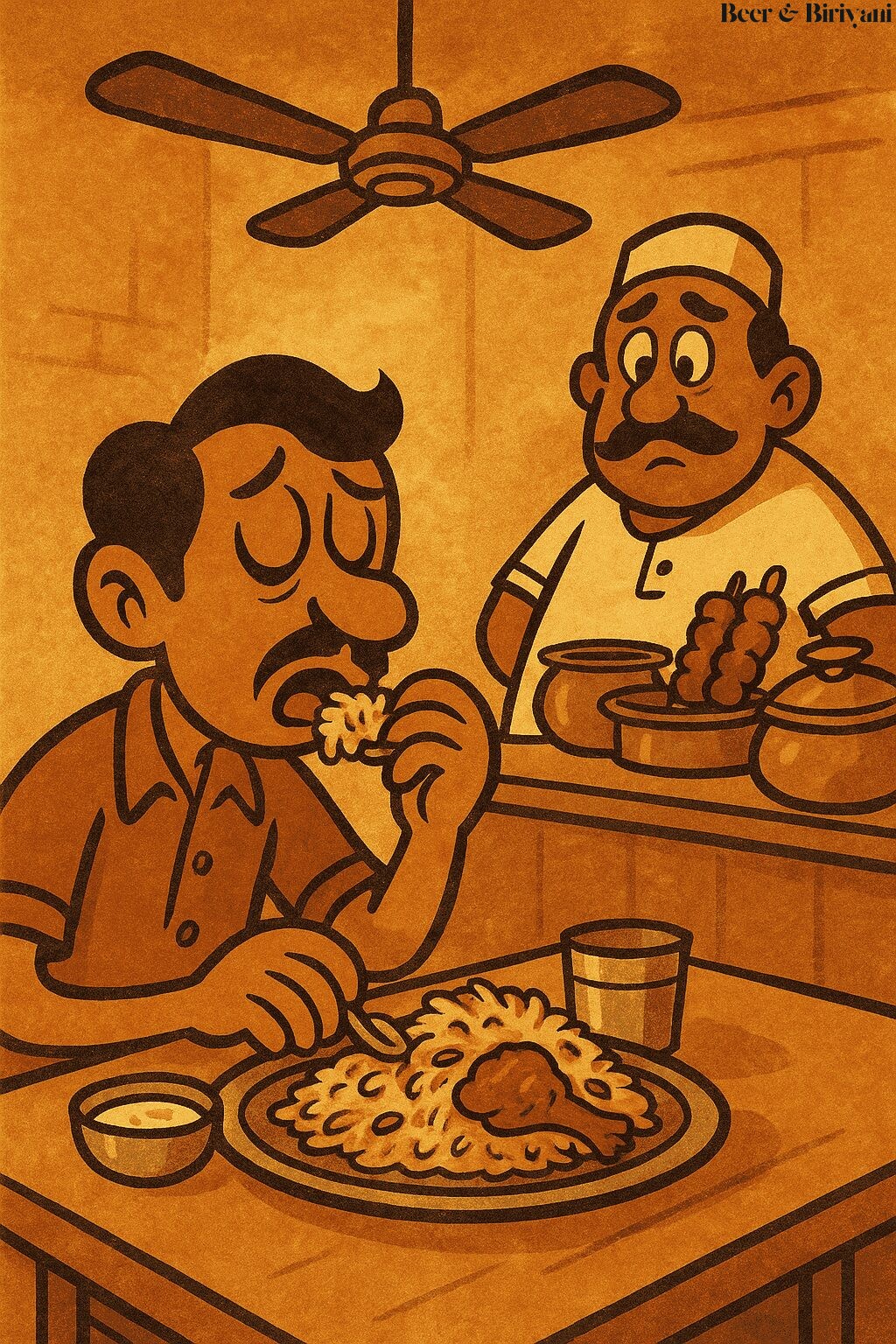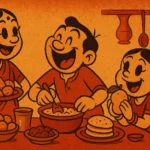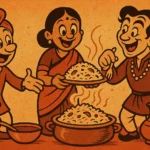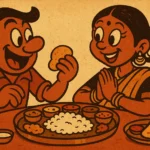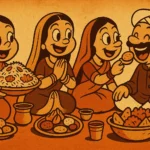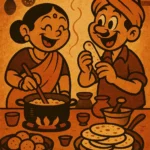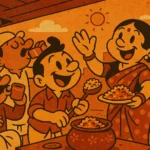It wasn’t a dramatic breakup. No shouting, no public scene. Just a mutual, polite unraveling of something that had once been love. You know the kind—two people sitting across from each other with coffees going cold, saying things like “maybe we’ve grown apart” and “I’ll always care about you.” And then the walk back to the car where everything feels both too quiet and too loud. That’s how it ended.
That evening, I didn’t want a drink. I didn’t want company. I didn’t want logic. I wanted biryani. The kind that doesn’t ask questions, that doesn’t require cutlery if you eat it right, and that soaks up sadness like basmati absorbing steam in a sealed dum pot.
So I found myself walking—stupidly far, in Austin’s August heat—to a small, slightly dingy but eternally comforting Hyderabadi joint I’d discovered on a solo work trip years ago. The sign said “Charminar Grill,” the chairs wobbled, and the ceiling fans were decorative at best. But the biryani? Therapy, layered and fragrant.
Biryani: The Dish That Understands
There’s a reason people wax poetic about biryani. It’s not just rice and meat. It’s a time capsule. Each grain is steeped in spice, in care, in slow heat. Hyderabadi biryani in particular is a kacchi style—meat marinated raw and then cooked under a heavy lid of dough-sealed rice. There’s suspense in every bite. Will I get a juicy chunk of mutton? A burst of fried onion? That one elusive clove I’ll regret biting into?
It’s a dish that rewards patience, both in cooking and eating. And heartbreak, my friend, leaves you with nothing but time.
The Kebabwala Who Got It
The man at the counter had the thick forearms of someone who lifted more skewers than dumbbells. He nodded when I ordered the mutton biryani, added a seekh kebab without asking, and said, “Bad day?”
I didn’t reply. Just offered a weak smile. He handed me a glass of lime soda with the kind of compassion usually reserved for widows in old films. I knew then I was in good hands.
How It Tasted
It came in a steel plate, rice mountain steaming, kebab nestled like a co-conspirator on the side. I tore into it. First bite: heat. Not spice, but heat—body-warming, cheek-flushing. Second bite: something softer, cinnamon maybe. Then came the mutton. Tender, quiet, as if it too knew not to speak loudly. Every handful of rice was different. A peppercorn here, a hint of mint there. I didn’t rush. I didn’t check my phone. I just ate. Slowly. Completely. Like this was the only important thing in the world right now—which, for the record, it was.
Eating Alone, Feeling Everything
I’ve eaten alone plenty of times. But this was the first time I ate with my sadness instead of trying to distract myself from it. I let it sit beside me. I let it reach across the table and take a spoonful. I let it nod in approval when the kebab broke apart perfectly with just a push of the fingers.
By the time I finished, something had softened. Not the pain—it was still there, curled up quietly. But the hunger had changed. It wasn’t just for food anymore. It was for being okay again. And I knew I’d get there. Because if biryani could feel like comfort in a world gone sideways, then maybe the world wasn’t entirely broken after all.
When Food Carries You
Back home, I sat on the couch, still tasting the coriander and caramelized onion on my tongue. I didn’t cry. Didn’t text her. Just stared at the ceiling fan—one that actually worked—and thought about how food sometimes holds us when people can’t. When nothing else fits, a plate of something familiar, warm, messy, and honest can remind you that joy is still possible. Even if it comes wrapped in aluminum foil, with raita on the side.
Would I Do It Again?
In a heartbeat. Not the heartbreak, of course—but the biryani. The quiet dinner with my grief. The nod of understanding from a man who’s probably seen a thousand breakups and knows to add an extra kebab, no charge.
We talk a lot about eating our feelings like it’s a failure. Like it’s indulgent. But that night, it wasn’t weakness. It was survival. It was ritual. It was medicine disguised as mutton. And honestly, it was worth every grain.
Born in Mumbai, now stir-frying feelings in Texas. Writes about food, memory, and the messy magic in between — mostly to stay hungry, sometimes just to stay sane.

